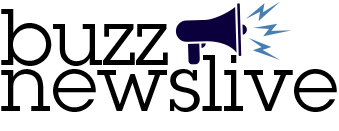New York CPA ethics standards form the backbone of the accounting profession, ensuring that accountants uphold the highest standards of integrity, professionalism, and confidentiality. By mastering these ethics, you can differentiate yourself from the competition, gain the trust of your clients, and enhance your reputation in the industry.
To better understand New York CPA ethics, you may want to check out an ethics CPE course. But first, here’s some of the basics before you get started.
Understanding the Foundations of New York CPA Ethics
To navigate the intricate landscape of New York CPA ethics, it is essential to familiarize yourself with the underlying foundations. The New York Board for Public Accountancy, overseen by the New York State Education Department, establishes and enforces the ethical standards for certified public accountants (CPAs) in New York.
These standards are derived from a combination of legal statutes, professional codes, and regulations.
Code of Professional Conduct: Your Guiding Light
The Code of Professional Conduct serves as the guiding light for CPAs in New York. It outlines the fundamental principles that every CPA must abide by. These principles include integrity, objectivity, professional competence and due care, confidentiality, and professional behavior.
By adhering to these principles, you not only ensure compliance but also build a strong foundation for ethical decision-making.
Independence: A Pillar of Trust
Independence is a crucial aspect of New York CPA ethics. As a CPA, it is essential to maintain independence in both appearance and fact. This means avoiding any conflicts of interest that may compromise your objectivity or professional judgment.
Upholding independence will instill trust in your clients, stakeholders, and the general public, enhancing your credibility as a CPA.
Maintaining Confidentiality and Privacy
Confidentiality is paramount in the accounting profession. As a CPA licensed in New York, you are entrusted with sensitive financial information and must ensure its confidentiality. This includes safeguarding client data, preventing unauthorized disclosure, and utilizing secure digital infrastructure.
By prioritizing confidentiality, you foster trust and loyalty among your clients, who rely on your discretion and professionalism.
Staying Updated: Continuing Professional Education (CPE)
To remain at the forefront of New York CPA ethics, it is imperative to engage in lifelong learning through Continuing Professional Education (CPE). The New York Board for Public Accountancy mandates that CPAs earn 6 CPE credits in ethics every three years.
Actively participating in relevant courses, seminars, and workshops, will enhance your knowledge and demonstrate your commitment to professional growth. If you’re looking for informative and trustworthy ethics CPE courses, contact CPE Online to check out the extensive range of options, including New York Ethics for CPAs. Their New York Ethics for CPAs Webinar actually meets the requirements of the New York State Board for Public Accountancy, making them a convenient option.
Ethical Dilemmas: Navigating Gray Areas
Ethical dilemmas are an inevitable part of any profession, including accounting. As a New York CPA, you may encounter situations where the right course of action is not immediately clear.
In such instances, it is crucial to rely on your ethical compass and consult professional resources, such as the New York State Society of CPAs (NYSSCPA) or the American Institute of Certified Public Accountants (AICPA). These organizations offer guidance and support to help you make informed decisions that align with ethical standards.


